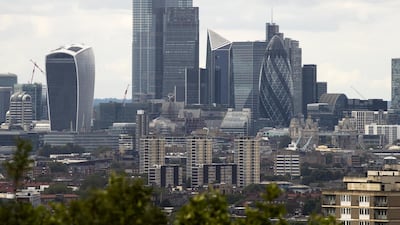The UK government is discussing plans to create a green investment bank to promote the country’s move to eliminate greenhouse gas emissions by 2050, Energy Minister Kwasi Kwarteng said.
The “huge investment” needed for the country to meet its legally-binding goal of achieving net zero emissions in three decades means “there may well be scope” for a development bank to promote investment in green projects, Mr Kwarteng said.
“It’s no secret that there’s been a broad discussion within government about how we can, in effect, create the Green Investment Bank 2.0,” Mr Kwarteng said on Monday. “That’s an ongoing debate within the government and I fully expect there may well be announcements in that regard in the not-too-distant future.”
The minister was speaking in an online seminar hosted by the environmental group UK100, a network of local leaders, mayors and a UK energy unit of Germany’s Siemens.
Under former prime minister David Cameron, the Tories established a Green Investment Bank in 2012 to accelerate Britain’s switch away from fossil fuel-fired power generation, before selling it for £2.3 billion (Dh10.6bn) to a group led by Macquarie Group in 2017.
At the time, the government said taxpayers received a return of about £186m from the sale – but the move was opposed by some UK lawmakers and environmental groups, who warned that changing the institution’s leadership could dilute its environmental mission.
Mr Kwarteng was responding to a proposal by UK100 to establish a “Net Zero Development Bank” to support local projects and make them more attractive to institutional investors.
“Clearly the fact that we are now committed to net zero over the next 30 years, and the fact that we need a huge amount of investment in order to have any chance of getting there, suggests that there may well be scope for the kind of development bank that you describe,” Kwarteng said.

